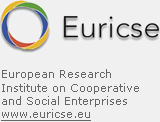Professor Caplan earned a PhD in interpersonal communication from Purdue University in 2000 and an MA from the University of Delaware in 1995. He joined the University of Delaware faculty in 1999. In 2006, he received the University of Delaware Faculty Senate Excellence in Teaching Award. In addition to his teaching and research, he currently serves as Associate Editor of Communication Research Reports and as a member of the Editoral Board for Communication Quarterly and the Journal of Computer Mediated Communication.
Research Program
My interest in Internet use and well-being began after reading anecdotal and empirical reports suggesting that people who reported that their Internet use resulted in negative life outcomes were especially drawn to the interpersonal uses of the Internet (e.g., chat rooms, instant messaging, message board systems, and online social networks). Additionally, some literature suggested that people who were lonely, depressed, and socially anxious were more likely than healthier individuals to engage in problematic Internet use. I wanted to know why. Thus, I have been in the process of developing a detailed theoretical model that seeks to explain why interpersonal aspects of Internet behavior are associated with people’s psychosocial health. My research program entails applying prior research on face-to-face communication (e.g., literature on loneliness, social anxiety, impression-formation, social skills) to the new forms of computer-mediated communication in order to understand how these media might foster problematic Internet use. Most recently, I have begun to collaborate with several colleagues on projects related to other interpersonal online phenomena such as online multiplayer gaming, impression formation online, and online dating.
Teaching Philosophy & Goals
My interest in the relationship between communicative phenomena and well-being influences both my research and my teaching. In teaching, I strive to help students apply the findings from my own research and other communication scholarship to their own lives in order to enhance their psychosocial well-being. I see my teaching and research as an integrated whole, rather than two disparate areas of my work.
My guiding pedagogical philosophy is that true learning occurs when students become active participants in their own educations. I firmly believe that encouraging students to become active, rather than passive, learners, helps them learn to recognize how class topics and assignments are relevant to their lives.
In every class I teach, I structure class meetings and assignments in ways that encourage students to take their share of responsibility for their education in an active manner. For instance, in my upper-level classes, I assign semester-long research projects. One part of the assignment involves selecting their own topics and then writing a proposal arguing why their selected topic is relevant, rather than having me assign topics (which they always ask me to do). By the end of the semester, most students are actually excited and interested in their projects and are eager to present their findings to the class. Ultimately, I believe that this orientation toward critical thinking and active learning helps me to educate students about communication in a manner that will help them transform their lives in beneficial ways.
List of Recent Publications
Caplan, S. E., & High, A. (2011). Online social interaction, psychosocial well-being, and problematic internet use. In K. Young & Nabuco de Abrue (Eds.), Internet Addiction: A Handbook and Guide to Evaluation and Treatment (pp. 35-53). Hoboken, NJ: John Wiley & Sons, Inc.
Young, D. G., & Caplan, S. E. (2010). Online Dating and Conjugal Bereavement. Death Studies, 7, 575-605..
Caplan, S. E. (2010). Theory and measurement of generalized problematic Internet use: A two-step approach. Computers in Human Behavior, 26, 1089–1097.
Caplan, S.E., Williams, D., & Yee, N. (2009). Problematic Internet use and psychosocial well-being among MMO players. Computers in Human Behavior, 25, 1312-1319.
High, A. & Caplan, S.E. (2009). Social anxiety and computer-mediated communication during initial interactions: Implications for the hyperpersonal perspective. Computers in Human Behavior, 25, 475-482.
Williams, D., Consalvo, M., Caplan, S. E. & Yee, N. (2009). Looking for gender (LFG): Gender roles and behaviors among online gamers. Journal of Communication, 59, 700-725.








